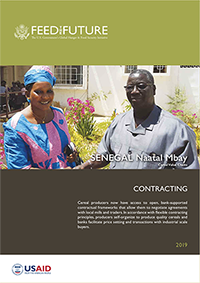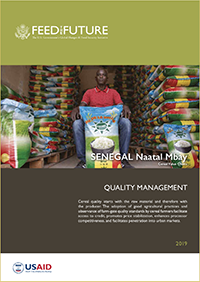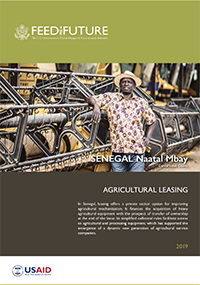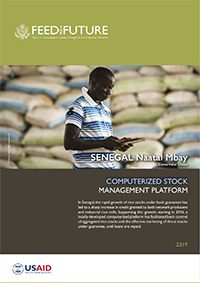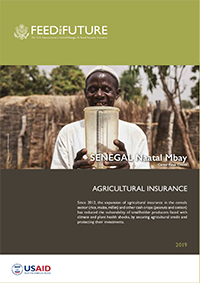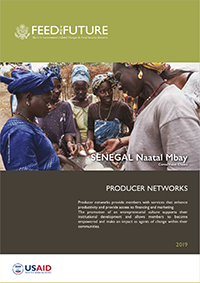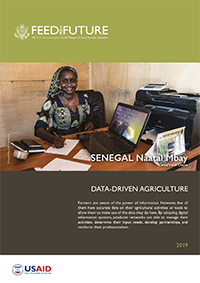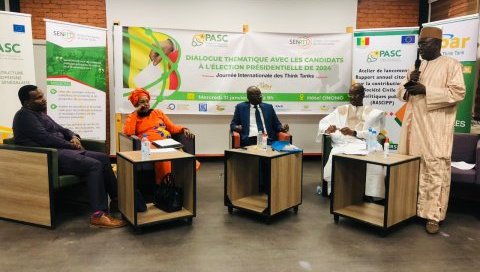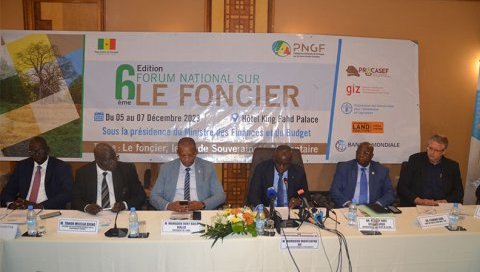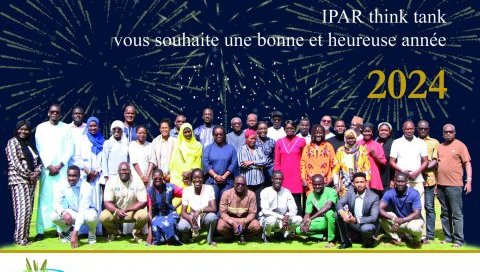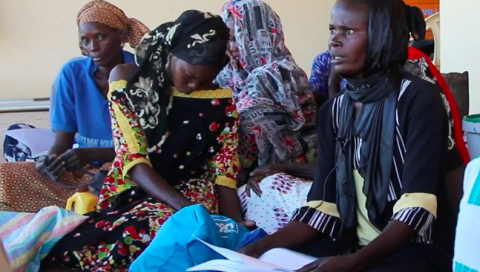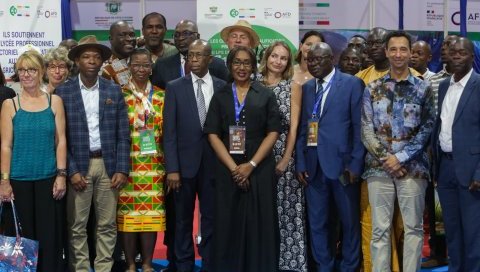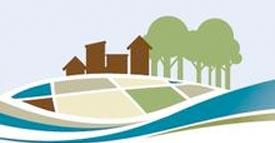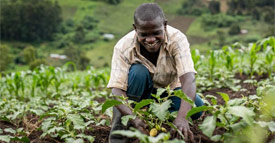Home / What we do? / Research / Agricultural performance / Notes on Agricultural Value Chains in Senegal
Notes on Agricultural Value Chains in Senegal
Published on 9 May 2019
The Naatal Mbay project, with the support of the IPAR think tank and RTI International, produced a series of 8 capitalization notes on the main transformations observed in Senegal’s agricultural value chains.
Notes on Agricultural Value Chains in Senegal

Natal Mbay project is part of the Feed the Future Initiative funded by United States Agency for International Development (USAID)
Launched in 2015, the project objective was to improve food security and incomes among vulnerable households in area affected
in the Plan Senegal Emergent, through the Accelerated Program for Recovery and Acceleration of the Agriculture Cadence in Senegal (PRACAS).
For its implementation, the project was based on the lessons and successes achieved by USAID/PCE (Economic Growth Project ECP) and other Senegal Feed the Future program, to strengthened and support wide dissemination with a large scale, technologies and best practices, successfully managed and introduced in value chain approach of the irrigated and upland rice crop, maize and millet.
The project’s main zones of influence were the Senegal River Valley, the central zone and Casamance
The activities have been conducted under three major strategic axes.
Improving productivity and quality through access to inputs and dissemination of technologies and best practices and strengthening post-harvest systems;
Improving agricultural markets for better connection of smallholders, promotion of private investment and financing systems;
Business development in the agri-food sector
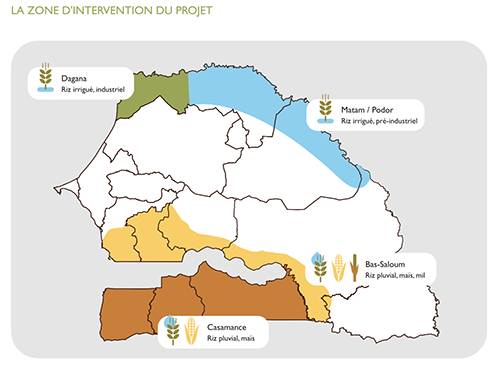
Cereal producers now have access to open, bank-supported contractual frameworks that allow them to negotiate agreements with local mills and traders. In accordance with flexible contracting principles, producers self-organize to produce quality cereals and banks facilitate price setting and transactions with industrial scale buyers.
The Government of Senegal’s plan for an emerging economy (PSE - Plan Sénégal Emergent) identified the development of cereal value chains as a priority for achieving inclusive agricultural development. The Feed the Future initiative aligned with this vision of inclusive cereal value chains. Firstly, through the USAID Economic Growth Project (PCE), then through the Naatal Mbay project, Feed the Future has worked to strengthen rice, maize, and millet smallholder farmers’ organizations so they are able to become part of competitive value chains and lucrative markets. Reinventing the contractual framework between buyers and smallholder producers in the particular context of the local cereals market was at the heart of this process.
Cereal quality starts with the raw material and therefore with the producer. The adoption of good agricultural practices and observance of farm-gate quality standards by cereal farmers facilitate access to credit, promotes price stabilization, enhances processor competitiveness, and facilitates penetration into urban markets.
Without compliance to agreed upon quality specifications, the relationship between value chain stakeholders cannot develop, particularly if the traded product is of low intrinsic value and attracts additional costs at every stage. Feed the Future, in keeping with its mission to promote inclusive value chains, adopted an inclusive approach that supports both producer organizations and their clients so that they take charge of the application of a pragmatic and effective quality management framework. This supposes a system that is accepted and understood by all, and capable that meets delivering a uniform raw material of the standard expected by processors and
consumers.
This innovative integrated financing model works by linking the repayment of farmer credit with the activation of credit lines for processors. This system, based on pledging and control of cereal stocks, has led to a significant increase in value chain financing, improved the loan recovery rate for banks, and strengthened the competitiveness of Senegal’s rice sector in the face of imports.
Feed the Future developed a partnership with financial institutions, notably the Senegal National Agricultural Bank (CNCAS), to rethink seasonal credit and marketing mechanisms available for cereal value chains and to lay the foundation for a secure and competitive financial market that fosters inclusive growth. This innovative mechanism has taken off in the Senegal River Valley (SRV) where it connects producers, rice millers, and CNCAS in a framework for valuing and pledging the paddy rice to secure loans. It has made it possible to redress the significant imbalance between local rice and imported rice in terms of the ability to mobilize short-term financial resources.
In Senegal, leasing offers a private sector option for improving agricultural mechanization. It finances the acquisition of heavy agricultural equipment with the prospect of transfer of ownership at the end of the lease. Its simplified collateral rules facilitate access to agricultural and processing equipment, which has supported the emergence of a dynamic new generation of agricultural service companies.
The US Government’s Feed the Future initiative was launched in Senegal in 2011 and has since supported the development of the country’s rice, maize, and millet value chains in the north, the center, and the south of the country. Increasing the competitiveness of smallholders requires access to efficient mechanized land preparation and harvesting services. Feed the Future has thus supported LOCAFRIQUE in the deployment of this new approach to equipment financing to enable the private sector to contribute to inclusive agricultural intensification,coordinating with and complementing Government of Senegal (GOS) subsidy programs.
In Senegal, the rapid growth of rice stocks under bank guarantee has led to a sharp increase in credit granted to both network producers and industrial rice mills. Supporting this growth, starting in 2016, a locally developed computerized platform has facilitated bank control of aggregated rice stocks and the effective marketing of those stocks under guarantee, until loans are repaid.
Feed the Future and CNCAS have successfully implemented in the Senegal River Valley a contracting system that links producers, banks and industrial rice mills. This system generates physical, financial, and informational flows that contribute to enhancing the performance and competitiveness of the irrigated rice value chain.To support the expansion of this trading framework and to take care of the needs of all the stakeholders, a computerized stock management platform was put in place.
Since 2012, the expansion of agricultural insurance in the cereals sector (rice, maize, millet) and other cash crops (peanuts and cotton) has reduced the vulnerability of smallholder producers faced with climate and plant health shocks, by securing agricultural credit and protecting their investments.
Today, agricultural insurance is becoming a powerful tool for protecting smallholder producers in Senegal. Since the 2013 crop year, the Feed the Future program for Senegal has joined the Senegal National Agricultural Insurance Company (CNAAS) and its partners in supporting the design and expansion of insurance solutions tailored to the cereals sector. Feed the Future’s goal is for agricultural insurance to become an integral and financially sustainable part of cereal value chains, both in terms of profitability for producers, and of the financial viability of CNAAS.
Producer networks provide members with services that enhance productivity and provide access to financing and marketing.
The promotion of an entrepreneurial culture supports their institutional development and allows members to become empowered and make an impact as agents of change within their communities.
For Feed the Future, strengthening producer organizations is a priority activity for realizing inclusive cereal value chains, a priority shared by the Government of Senegal. This support for producer networks is carried out through empowerment initiatives launched by organizations such as the Federation of Self- Administered Irrigated Rice Parameter Zones (FPA) of the Senegal River Valley, cooperatives affiliated with the Senegalese Association for the Promotion of Bottom-Up Development (ASPRODEB) and NGOs active in the South such as Symbiose and Entente. Feed the Future aimed to build on these achievements and offer organizations the opportunity to develop their entrepreneurial capacities by entrusting them with the responsibility of implementing training, and providing production guidance, connections to input suppliers, credit, and insurance, and marketing programs.
Farmers are aware of the power of information. However, few of them have accurate data on their agricultural activities or tools to allow them to make use of the data they do have. By adopting digital information systems, producer networks are able to manage their activities, determine their input needs, develop partnerships, and reinforce their professionalism.
The integration of small farmers into competitive and profitable value chains rests on a capacity to manage information flows. Feed the Future recognizes that today’s digital information and communication technologies have the power to transform a multitude of isolated farms into consolidated production units numbering thousands of hectares, giving way to significant economies of scale.
Through its Senegal Naatal Mbay project, Feed the Future trusts that the self-organization capacity of small producers and local Micro, Small and Medium Enterprises (MSME) can lead to the construction of robust self-managed digital solutions adapted to their management needs and compatible with their technological context and education levels. The objective of Feed the Future has been to lay the foundations of a new business ecosystem where producer organizations own their data and steer their own growth and development in a resilient way.
Bilan global des activités 2015 - 2019
Chaines de valeur riz irrité, riz pluvial, mil, mais
Download
LA CONTRACTUALISATION DANS LES CHAINES DE VALEUR AGRICOLES (PDF - 866.4 kb)
LA GESTION DE LA QUALITÉ DANS LES CHAINES DE VALEURS AGRICOLES (PDF - 1.1 Mb)
LE FINANCEMENT INTÉGRÉ DANS LES CHAINES DE VALEUR AGRICOLES (PDF - 911.3 kb)
LE CRÉDIT-BAIL AGRICOLE (PDF - 1.2 Mb)
LA PLATEFORME INFORMATISÉE DE GESTION DES STOCKS (PDF - 829.9 kb)
LES RÉSEAUX DE PRODUCTEURS (PDF - 1018.2 kb)
L’AGRICULTURE PILOTÉE PAR LES DONNÉES (PDF - 918.7 kb)
QUALITY MANAGEMENT (PDF - 1.1 Mb)
INTEGRATED FINANCING (PDF - 960 kb)
AGRICULTURAL LEASING (PDF - 1.3 Mb)
COMPUTERIZED STOCK MANAGEMENT PLATFORM (PDF - 874.7 kb)
AGRICULTURAL INSURANCE (PDF - 961.3 kb)
PRODUCER NETWORKS (PDF - 1 Mb)
Read also
 Rapport d’évaluation d’impact de NAATAL MBAY réalisée par l’UGB
Rapport d’évaluation d’impact de NAATAL MBAY réalisée par l’UGB Impact assessment : Highlights
Impact assessment : Highlights  Commerce du riz et développement de la filière en Afrique de l’Ouest : une approche pour des politiques publiques plus cohérentes
Commerce du riz et développement de la filière en Afrique de l’Ouest : une approche pour des politiques publiques plus cohérentes Comment informer les programmes du système d’Enseignement et de Formation Professionnels et Techniques (EFTP) des opportunités de la chaîne de valeur riz ?
Comment informer les programmes du système d’Enseignement et de Formation Professionnels et Techniques (EFTP) des opportunités de la chaîne de valeur riz ? Etude de la consommation des céréales de base au Sénégal - projet NATAAL MBAY
Etude de la consommation des céréales de base au Sénégal - projet NATAAL MBAY


